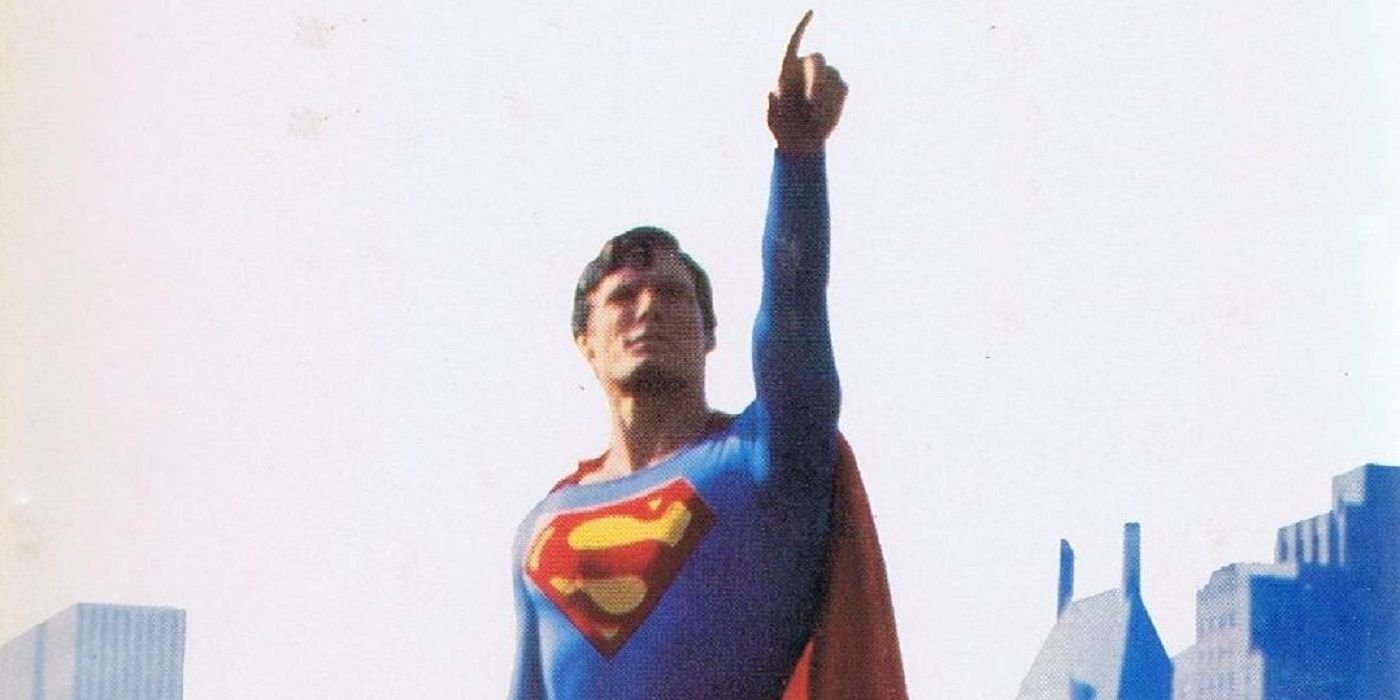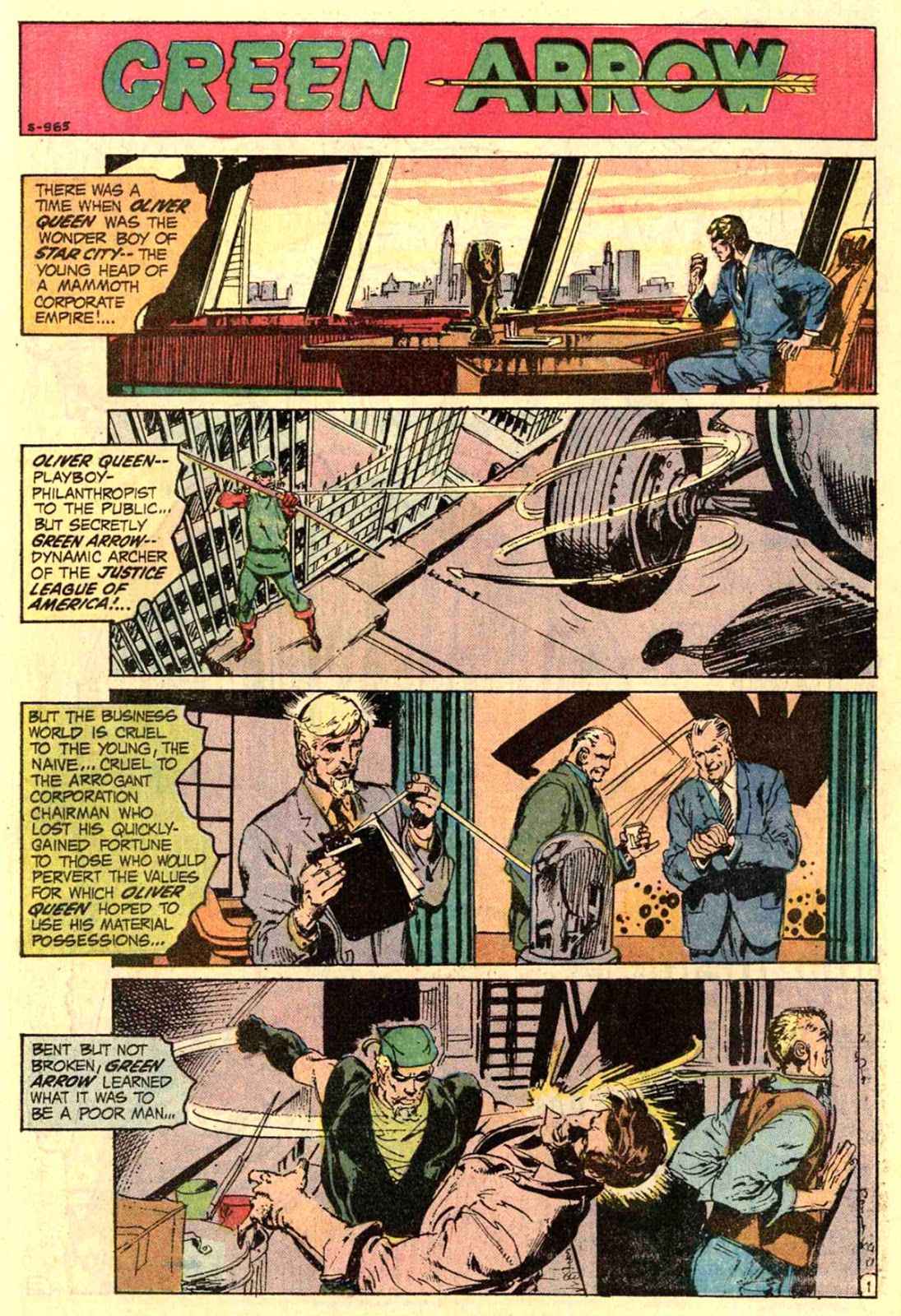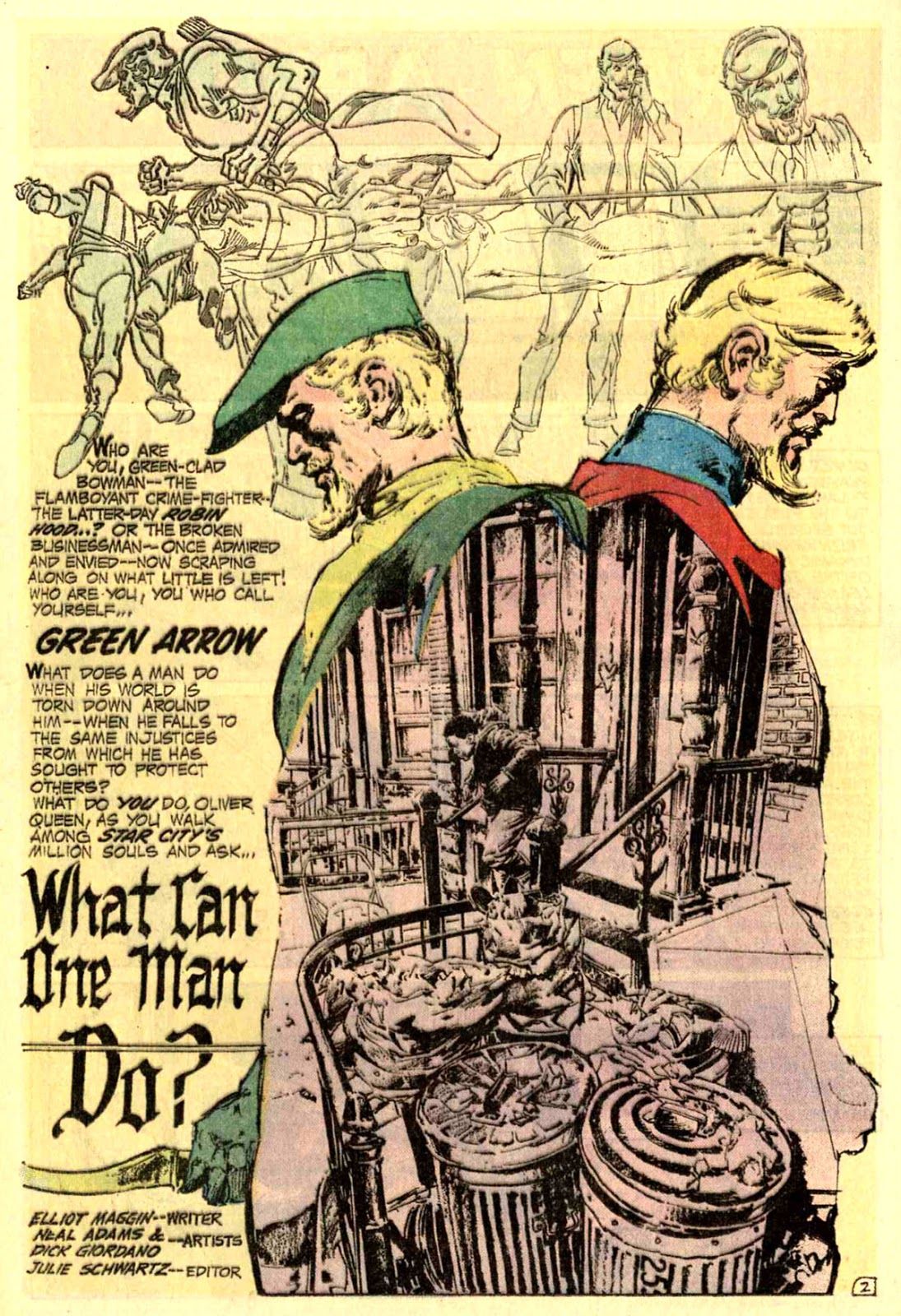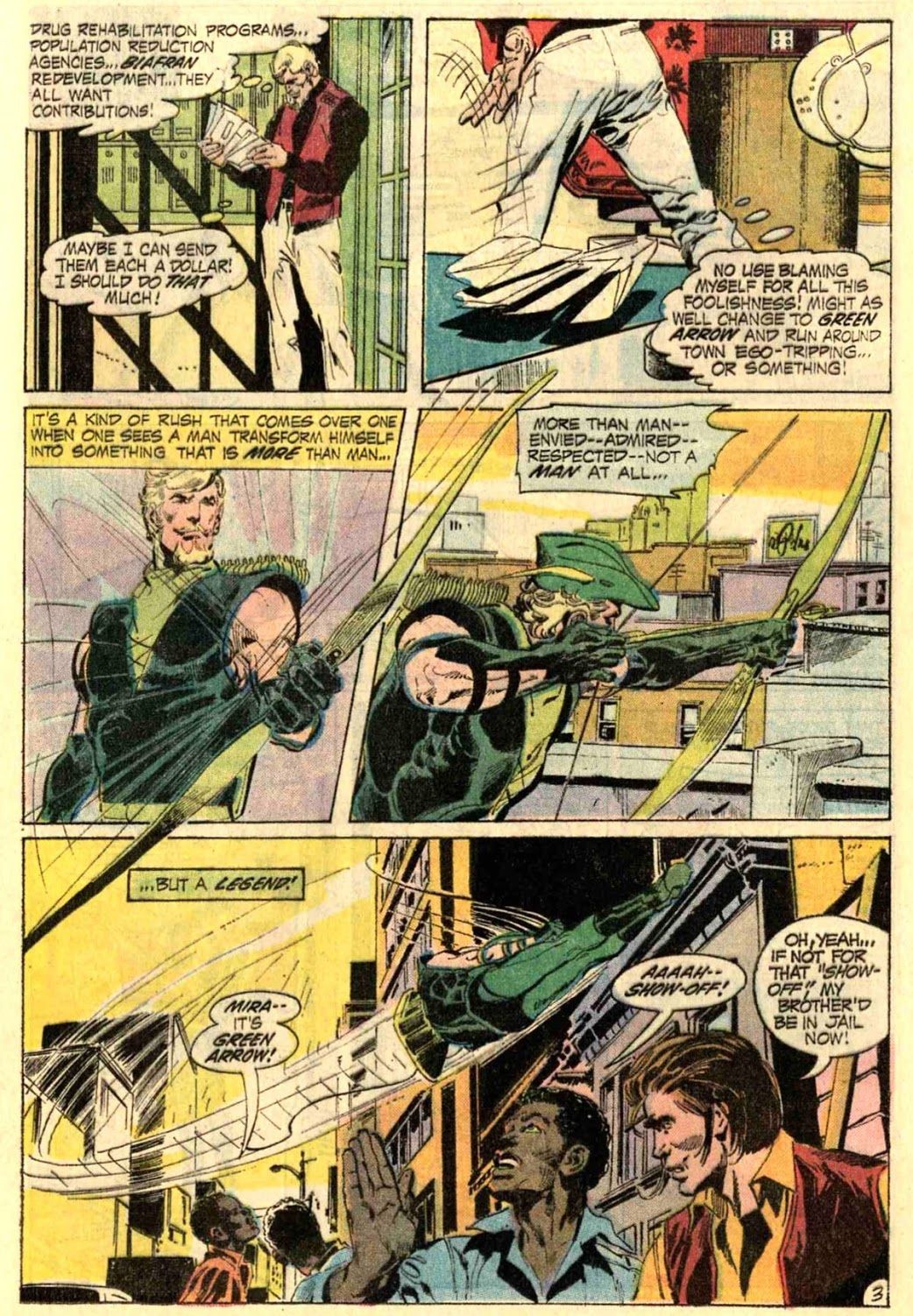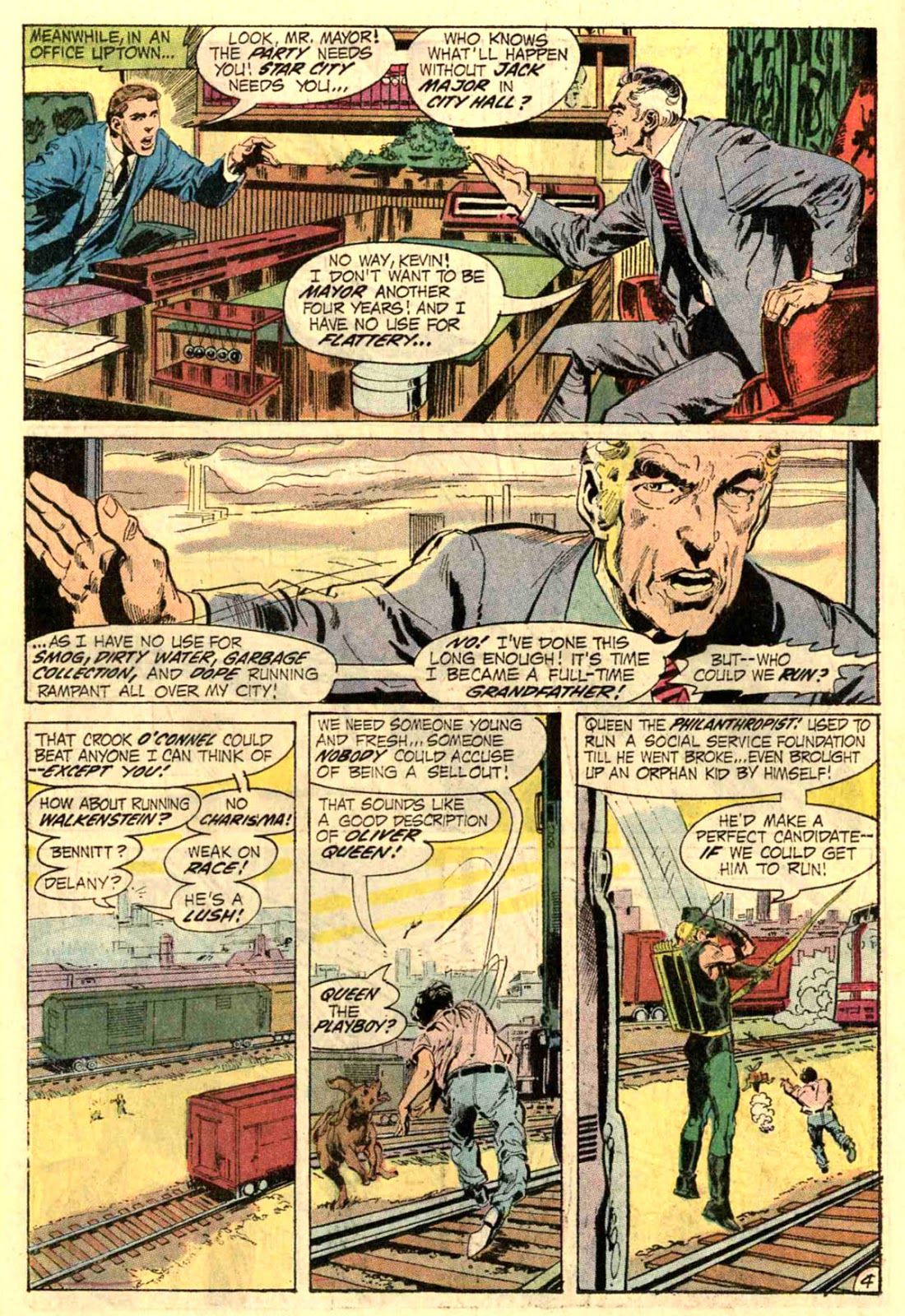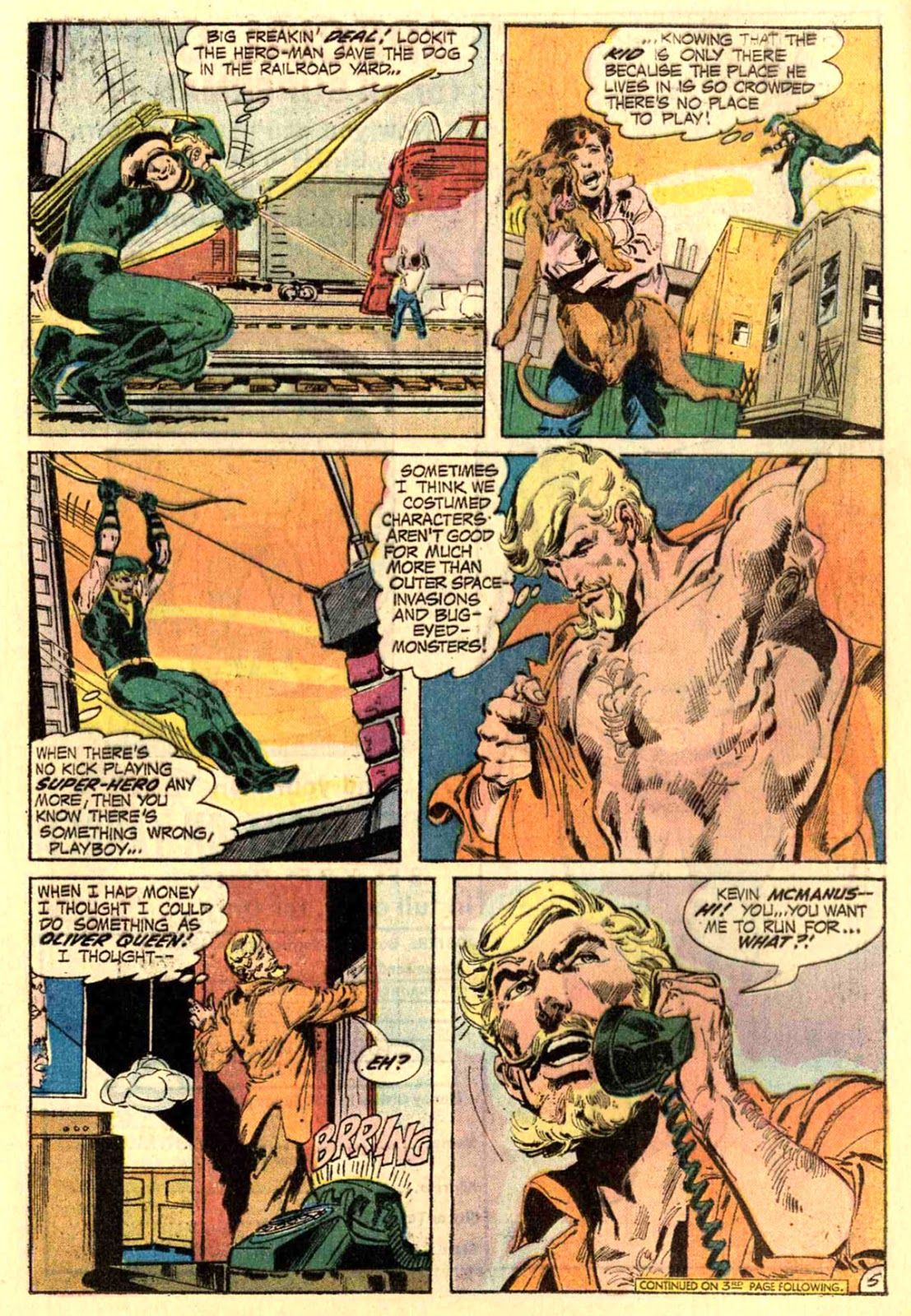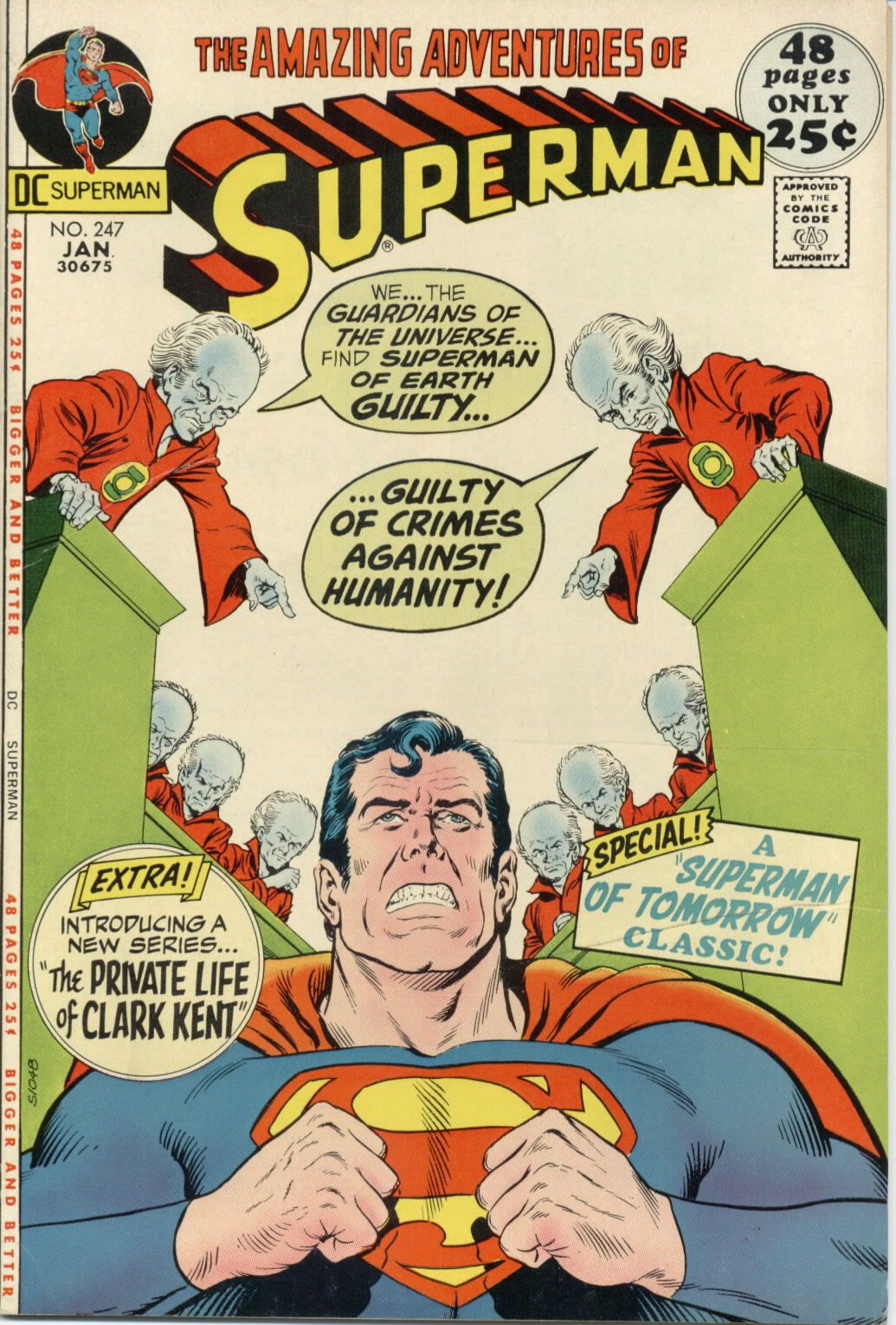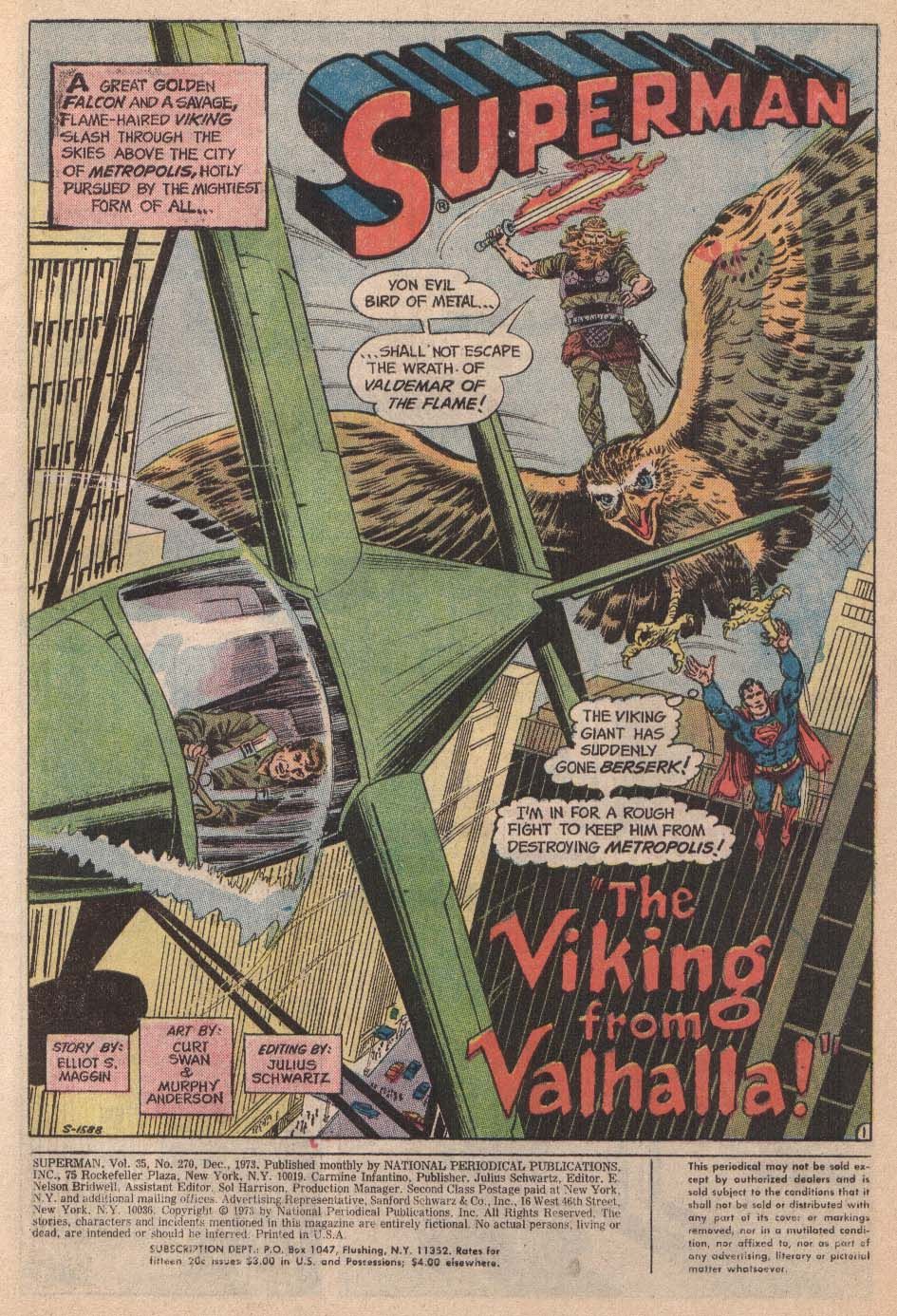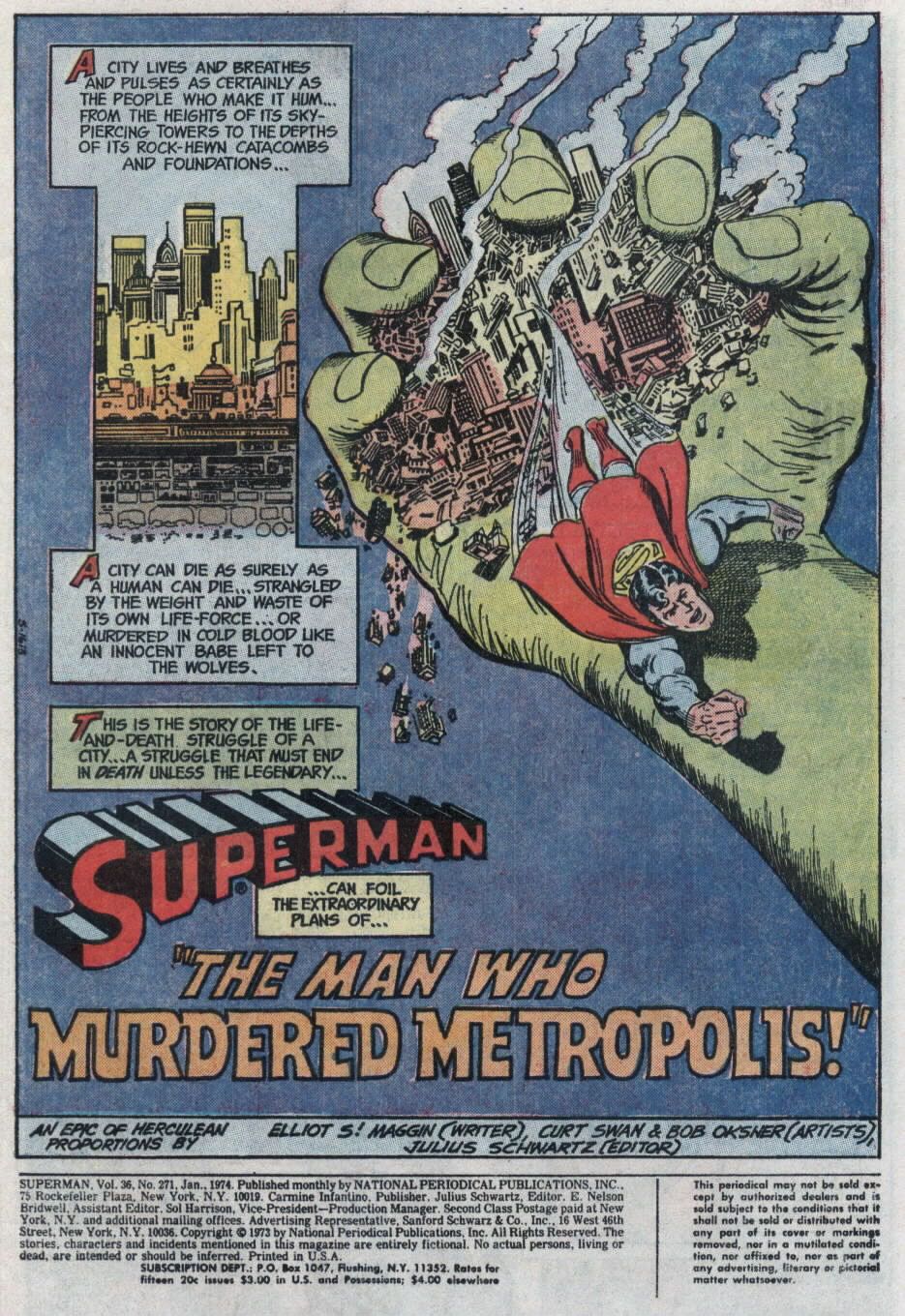In "When We First Met", we spotlight the various characters, phrases, objects or events that eventually became notable parts of comic lore, like the first time someone said, "Avengers Assemble!" or the first appearance of Batman's giant penny or the first appearance of Alfred Pennyworth or the first time Spider-Man's face was shown half-Spidey/half-Peter. Stuff like that.
Today, we take a look at the origin of one of the coolest comic book credits in the history of comic book credits (to be fair, there is not a whole lot of competition for "coolest comic book credits," although, I guess Stan "The Man" Lee and Jack "King" Kirby are both pretty darn cool credits in their own right), the origin of Ellot S! Maggin!
As I have written about numerous times in the past, Elliot Maggin has not only one of the coolest stories behind the publication of his first comic book story but also probably the coolest story behind the publication of his SECOND comic book story (after all, you don't hear a whole lot of "my second comic book story" stories out there).
Here, from one of my earliest Comic Book Legends Revealed, is a quote from Maggin as to how his first comic book story was created...
"What Can One Man Do?" was a term paper at Brandeis. My junior year there I took an American history course that involved a section on mass media taught by a graduate student. I wanted to illustrate that comic books were useful as an ideological tool. I had read that comics in South America and elsewhere were used by governments and anti-government insurgent groups to make their cases through story narrative to their constituencies, and I thought that countries with lower literacy rates probably did not have a monopoly on the medium's effectiveness. So I chose Green Arrow because he was the most overtly politically aware of the popular characters of the time. I gave him a left-leaning personal crisis -- imposing pretty much my own political philosophy and my own speech patterns at the time (the latter were a bit quirky, even by the day's standards) -- and had that determine the direction of his public life. It was a simple story, but I particularly liked the little touches that I used to try to make it distinctive: quoting Hemingway (as Denny had quoted Mailer a few months earlier) and using a bit of contemporary jargon.
I got a B+ on the paper and thought I deserved an A. So I sent it to DC to make that point to my instructor. I did, as it happens, but the semester was over by the time I got my answer from Julie Schwartz and the publication never affected my grade. Not that I thought it would.
This became Green Lantern #87's Green Arrow back-up (with art by Neal Adams and Dick Giordano)...
From an even EARLIER Comic Book Legends (we're talking before Comic Book Legends Revealed #20, even), here is Maggin explaining his SECOND comic book story...
I have a friend named Jeph. You know Jeph. I was maybe nineteen or twenty and he was maybe twelve or thirteen and I was a student at this college and Jeph's stepdad was a big muckamuck at the college and stepdad and I made friends. I went over to stepdad's house for dinner one day and Jeph and I got to talking there about our mutual love for super-heroes and their stories. We came up with a nifty story over mom and stepdad's dinner table. See, I'd just sold my first comic-book script, a Green Arrow story called "What Can One Man Do?" and I had a problem. I had a meeting soon with Julius Schwartz, the Bard of Bards, to see whether I was a one-trick pony or I could do this sort of thing again. I had to come up with a hit-it-outta-the-park idea for a Superman story or else spend the next three years in law school. I guess I told Jeph a few of my ideas and I guess Jeph told me a few of his. And Jeph came up with this thing he called "Why Must There Be a Superman?" It was about the Guardians of the Universe planting a new idea in Big Blue's head. The idea was that maybe, in his zeal to preserve life and ease the path of the human race, Superman was keeping ordinary everday good humans from growing on their own. Maybe he was killing the butterfly by helping it out of the chrysalis. Not for sure, but just maybe. That was Jeph's idea.
So I went to Gotham, to see the Bard and I had maybe a dozen little germs of ideas packed under my scalp. I'd try this one on him. I'd toss him that one. I'd pitch him another one. Some of them he liked; some of them he didn't. Some of them inspired ideas of the Bard's own; some of them made him snort or snore. By the end of a couple of hours - they were a loud, intense couple of hours, as hours I spent with the Bard of Bards always would be - I was emotionally exhausted and still he wanted to hear more. So I dredged up this idea about what might happen if the Guardians came calling on Superman with the tiniest little criticism of how he was doing his job. Now you're talking fresh stuff, the old man let me know. He got excited. He yanked people in from the hall and made me repeat the idea for them.
I called the story "Must There Be a Superman?" and Saint Curt and Murphy drew it and it made me happy and I put words in Superman's mouth pretty much steadily for the next fifteen years and never went to law school. And I swear I did not have a clue where the idea had come from. Who knows where ideas come from anyway? I didn't remember - still don't remember, in fact, but I believe Jeph - until Jeph told me about his contribution years later. Like twenty or so years later.
Jeph has never suffered, I don't believe, for my inconsiderate oversight, and in fact has always been my friend. He's done well, too. With his buddy Matthew he wrote the first great super-hero movie of the modern period, Commando with Arnold Schwarzenegger, and lots of other great stuff. And one day later on I was editor of Jeph's first comic-book series of his own, an eight-issue masterpiece with Tim Sale called Challengers of the Unknown. Now he writes for Hollywood and he writes for DC and Marvel and he's happy and he's still my friend, and now I get to make this right too.
Here's "Must There Be a Superman" from Superman #247...
Okay, so when did the name change?
Page 2: [valnet-url-page page=2 paginated=0 text='The origin of the S!']
From this interview, Maggin explains the origin of the S!...
I got into the habit of putting exclamation marks at the end of sentences instead of periods because reproduction on pulp paper was so lousy. So once, by accident, when I signed a script I put the exclamation point after my 'S' because I was just used to going to that end of the typewriter at the time. And Julie saw it, and before he told me, he goes into the production room and issues a general order that any mention of Elliot Maggin's name will be punctuated with an exclamation mark rather than a period from now on until eternity."
So when did it get implemented?
It was Elliot S. Maggin in Superman #270...
but became Elliot S! Maggin with the following issue...
If anyone else has a suggestion for a notable comic book first, drop me a line at brianc@cbr.com!

